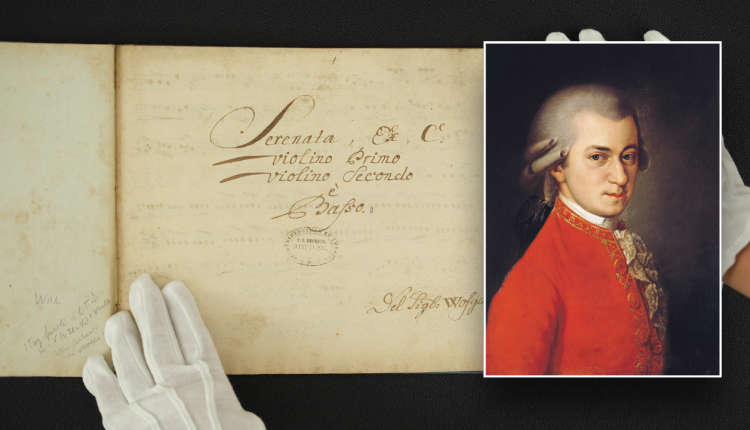Long-lost Mozart composition discovered in library after decades of obscurity, centuries after his death
German researchers recently discovered a “new” piece by Wolfgang Amadeus Mozart, 233 years after his death.
Leipzig Municipal Libraries announced the discovery of the newly-identified composition, originally called “Serenade in C,” on Thursday. The manuscript of the composition dates back to around 1780, when Mozart was 24 years old.
It was noticed by researchers working on a new edition of the Köchel catalog, which is a formal catalog of Mozart’s compositions.
The piece will be published in the newest catalog under the name “Ganz kleine Nachtmusik,” which translates to, “Quite Little Night Music.” Its name is a reference to the famous Mozart piece, “Eine kleine Nachtmusik.”
1,000-YEAR-OLD VIKING TREASURE FOUND HIDDEN IN DIRT: ‘UNIQUE FINDING’
In a press release translated from German to English, officials said that the composition has been in the possession of the library for an unspecified period of time, but was not identified as a Mozart piece until recently.
“The piece consists of seven miniature sets for string trio, which together only last about twelve minutes,” the library explained.
DIVERS SHOCKED AFTER FINDING 1856 SHIPWRECK OFF COAST OF MASSACHUSETTS: ‘NEEDLE IN A HAYSTACK’
Leipzig Municipal Libraries believes that Mozart, famous for being a child prodigy, wrote the piece as a teenager in the 1760s. The newly-identified document was a copy of the original manuscript, made over a decade later.
“The manuscript … does not come from Mozart himself,” the library’s translated statement read. “Dark brown ink and medium white handmade paper were used, the parts are individually bound, the manuscript was not signed.”
“It is believed that a period of origin in the mid to late 1760s – Mozart must have just become a teenager.”
On Saturday, the piece was performed at the Leipzig Opera by two violinists and a cello player. Ulrich Leisinger, the head of research at the International Mozarteum Foundation, noted the piece’s significance in a recent press release.
“Until now the young Mozart has been familiar to us chiefly as a composer of keyboard music and of arias and sinfonias, but we know from a list drawn up by Leopold Mozart that he wrote many other chamber works in his youth, all of them unfortunately lost,” the expert explained. “It looks as if – thanks to a series of favorable circumstances – a complete string trio has survived in Leipzig.”
“The source was evidently Mozart’s sister, and so it is tempting to think that she preserved the work as a memento of her brother,” Leisinger added. “Perhaps he wrote the Trio specially for her and for her name day.”
For more Lifestyle articles, visit www.foxnews.com/lifestyle.
Read the full article here

